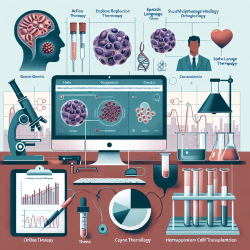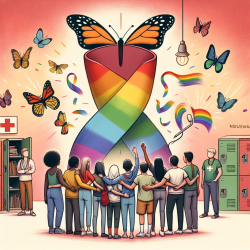Universal Newborn Hearing Screening (UNHS) has become a cornerstone in early identification and intervention for hearing impairment, with the potential to significantly impact a child's developmental trajectory. However, despite its widespread endorsement, the implementation of UNHS programs is not without its challenges. Drawing on the comprehensive analysis presented in "Issues and Concerns Associated with Universal Newborn Hearing Screening Programs" by Fred H. Bess and Terrey Oliver Penn, this blog aims to offer practitioners actionable insights and encourage further exploration into the nuances of UNHS.
Understanding the Landscape of UNHS
The call for universal newborn hearing screening has led to a significant professional debate focusing on its feasibility, effectiveness, efficiency, and associated risks. While recent years have seen a surge in support for UNHS, leading to an increase in program implementation, it's crucial for professionals involved to stay informed about ongoing issues and concerns that could affect program outcomes.
Programmatic Challenges in UNHS
One of the critical areas highlighted involves the programmatic challenges associated with predicting and improving screening outcomes. The low prevalence of congenital hearing loss makes achieving a balance between identifying all affected newborns and minimizing false positives a complex task. Enhancing screening outcomes requires a multifaceted approach, including the adoption of superior screening technologies, optimization of screening protocols, and thoughtful consideration of sequential testing strategies.
Cost, Legal, and Follow-up Concerns
Beyond the programmatic issues, the research also sheds light on cost considerations, legal implications, and the critical need for effective follow-up mechanisms. These factors play a significant role in the overall success and sustainability of UNHS programs. Addressing these concerns involves not only leveraging advancements in technology and protocol refinement but also ensuring that legal frameworks support the ethical and practical dimensions of screening. Moreover, establishing robust follow-up procedures is paramount to ensure that newborns who fail initial screenings receive the necessary diagnostic assessments and interventions.
Strategies for Enhancing Practitioner Skills and Program Outcomes
To navigate the complexities of UNHS and improve program outcomes, practitioners can adopt several strategies:
- Continued Education and Training: Engaging in professional development opportunities to stay abreast of the latest technologies, screening protocols, and best practices in newborn hearing screening.
- Research Engagement: Actively participating in or supporting research efforts aimed at evaluating and enhancing the effectiveness of UNHS programs.
- Interdisciplinary Collaboration: Working closely with a team of healthcare professionals, including audiologists, pediatricians, and early intervention specialists, to ensure a comprehensive approach to newborn hearing screening and follow-up care.
- Family-Centered Care: Incorporating a family-centered approach in UNHS programs, recognizing the importance of parental involvement and support throughout the screening and intervention process.
- Advocacy and Policy Influence: Contributing to policy discussions and advocacy efforts to address legal, financial, and operational challenges associated with UNHS, aiming for broader program support and sustainability.
By embracing these strategies, practitioners can not only enhance their skills but also contribute to the continuous improvement of UNHS programs, ultimately benefiting countless newborns and their families.
Conclusion
As UNHS programs continue to evolve, staying informed and actively engaged in addressing the multifaceted challenges is crucial for practitioners. The insights from "Issues and Concerns Associated with Universal Newborn Hearing Screening Programs" provide a valuable framework for reflection and action. By focusing on programmatic improvements, cost and legal considerations, and the importance of follow-up, practitioners can play a pivotal role in enhancing the early identification and intervention of hearing impairment in newborns.
For those interested in delving deeper into the intricacies of UNHS and exploring ways to improve their practice, Issues and Concerns Associated with Universal Newborn Hearing Screening Programs offers comprehensive insights and guidance.










